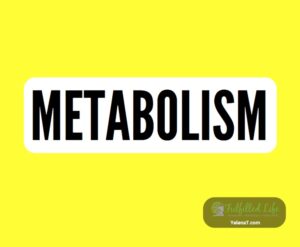Are you tired of struggling with weight loss despite your efforts? Understanding how your body’s hormones work could be the missing piece to your weight loss puzzle. Let’s dive into the major glucose-balancing hormones and how they impact your journey to a healthier, happier you.
GLP-1: Your Blood Sugar’s Best Friend
Meet GLP-1, your body’s secret weapon against high blood sugar levels. This hormone, known as an incretin, works wonders by decreasing blood sugar levels in a glucose-dependent manner. How? By boosting insulin secretion, which helps your cells absorb glucose for energy.
But GLP-1 doesn’t stop there. It also ensures that your pancreatic beta cells stay healthy and productive. By promoting insulin gene transcription and increasing beta cell mass, GLP-1 helps prevent insulin resistance and keeps your glucose levels in check.
Ways to Boost GLP-1:
Natural supplements are available that can promote GLP-1 production without any unwanted side effects. If you’re interested in learning more or need a recommendation, feel free to reach out. By incorporating these supplements into your routine, you can support your body’s natural ability to regulate blood sugar levels and promote overall health and well-being.
Leptin: The Long-Term Regulator
Ever wonder why some people seem to eat whatever they want without gaining weight? Meet leptin, the hormone responsible for long-term regulation of food intake and energy expenditure. Released by your fat cells, leptin signals to your brain when you’re full, helping you control your appetite and maintain a healthy weight.
However, in some cases of obesity, the body becomes resistant to leptin’s signals, leading to overeating despite ample fat stores. By understanding leptin resistance, we can work towards restoring the body’s natural balance and promoting sustainable weight loss.
Ghrelin: The Hunger Hormone
Have you ever experienced intense hunger that seems impossible to satisfy? Blame it on ghrelin, the notorious “hunger hormone” produced by your stomach. Ghrelin not only stimulates appetite but also promotes fat storage, making it a formidable opponent in the battle against weight loss.
Effects of Ghrelin:
- Plays a crucial role in glucose and energy homeostasis.
- Affects insulin secretion and glucose storage in key organs.
By understanding ghrelin’s role, we can better manage our hunger and cravings, paving the way for successful weight loss.
Insulin: Your Glucose Guardian
Last but certainly not least, we have insulin, the master regulator of glucose balance. Produced by the pancreas, insulin is essential for ensuring that your cells can use glucose for energy. Without enough insulin, your cells would be unable to absorb glucose, leading to high blood sugar levels and weight gain.
Key Functions of Insulin:
- Regulates glucose.
- Helps stop the breakdown of protein and fat, ensuring a steady source of energy.
By maintaining optimal insulin levels, we can support healthy metabolism and promote weight loss.
Ready to Take Control of Your Weight?
Now that you understand the role of these key hormones in glucose balance and weight loss, it’s time to take action. If you’re struggling to lose weight and want personalized guidance, I invite you to schedule a complimentary consultation with me. Together, we can create a tailored plan to help you achieve your weight loss goals and live your best life.
Remember, sustainable weight loss is about more than just diet and exercise. By understanding how your body’s hormones work, you can unlock the secrets to long-term success and finally achieve the healthy, vibrant life you deserve.








